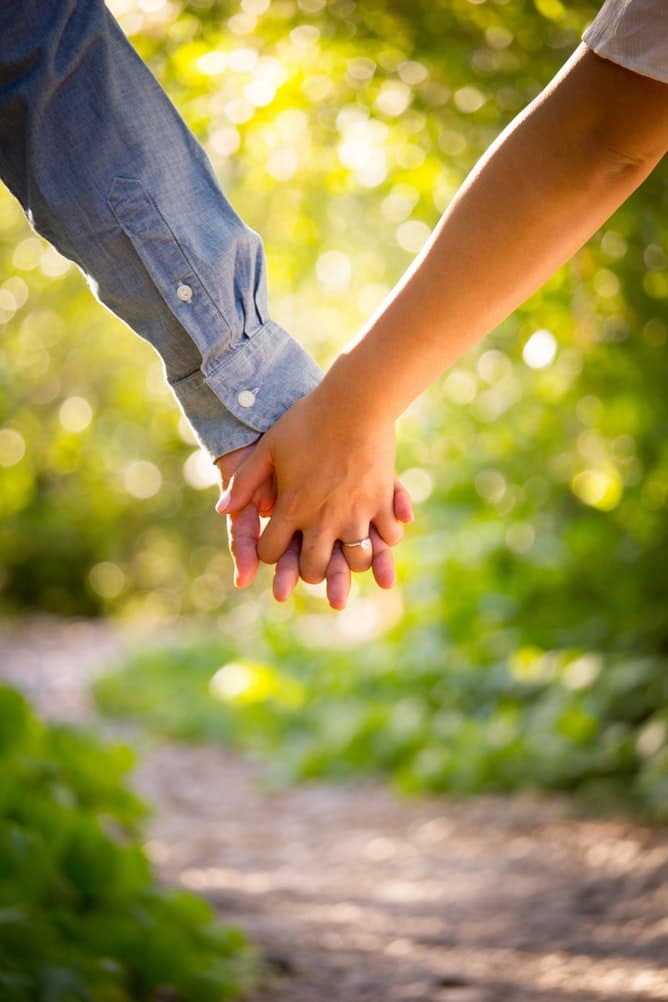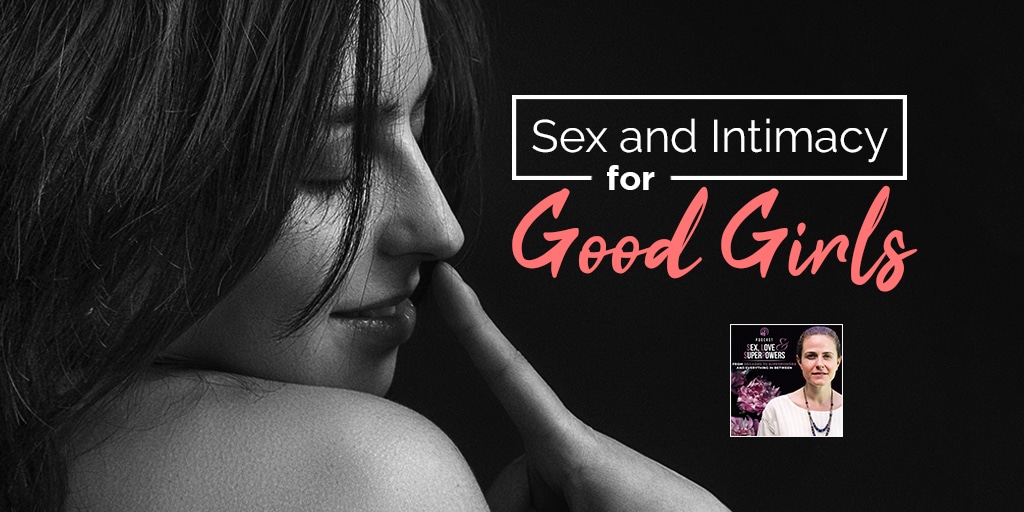
Hello everyone. Welcome to the Sex, Love and SuperPowers podcast show. I am your host, Tatiana Berindei and today, I am delighted to have with me Miss Leah Carey. We are going to be talking about sex and intimacy for good girls.
I’m very excited for this conversation.
Let me tell you a little bit about Leah Carey so you can get excited for it too. Leah is a sex educator and sexual communication coach who helps people learn to communicate about sex so they can get what they really want in the bedroom rather than just accepting or tolerating what they’re given. She is the host of the podcast Good Girls Talk About Sex.
Sexual freedom is a subject that is deeply personal to Leah because she spent most of her life being a very good girl. Most of the sex she had was either boring or painful, but she endured it because she didn’t know she was allowed to ask for anything different. Having taken her own journey to sexual freedom, she is now passionate about breaking the silence, fear and shame around women’s sexuality and pleasure and redefining what it means to be a good girl. Welcome to the show, Leah.
Thank you so much, Tatiana. I am thrilled to be here.
I’m thrilled to have you. Before we dive into this very intriguing topic, will you please tell our listeners what your superpowers are?
It’s funny. For a long time I thought that I was an over communicator and that I made everybody around me crazy with how much I communicate. And then one day, I was having a conversation with a mentor who I really trust and admire and she said to me, “You know, communication is your superpower.” And I was like, “Oh my God, you’re right.” It’s not a terrible thing. It’s just that this is the thing that I do really, really well and I can help to guide people in that direction rather than thinking of it as this thing that I overwhelmed them with.
I love that distinction and I think for a lot of us, sometimes our superpowers, we actually talk about that as superpowers. For a lot of us, sometimes the superpowers start out as challenges, and then when we really learn to embrace them, they truly do become superpowers.
Absolutely.
Communication is such a huge one. I think there’s so much that we think that we’re communicating that we’re not, and it’s gotten so distorted nowadays with social media and technology and texting, it’s like we think we’re communicating and we’re not.

We take shortcuts in our communication and then we get angry or resentful that the other person doesn’t understand us exactly the way that we desire or need be understood.
Yeah, we make a lot of assumptions about what we think other people all ready know, what we think they should inherently understand about us. And so, we take shortcuts in our communication and then we get angry or resentful that the other person doesn’t understand us exactly the way that we desire or need be understood. I see it all the time, not only in the people who I work with, but also in my own relationship. Both my expectations and assumptions about my partner and his expectations of me, it’s rampant. I don’t know that I’ve ever seen a relationship that doesn’t have some level of those uncommunicated expectations. Some are certainly better than others, but yeah, I don’t think I’ve ever seen any relationship where there’s not some level of tension around communication.
Yeah. And this is intimate partnerships. Let’s not even go to what’s happening right now.
Yeah. Good point.
I want to talk about what it means to be a good girl. For me, this is a fascinating topic because I was never the good girl. I mean, maybe as a little child, I was trying to be good, but I was totally the one who skipped class to smoke pot in high school. So I’d really love to hear your definition of a good girl and when that’s sort of the focus of your work, right?
Yeah. I was the opposite of you. I am the girl who never skipped class once. I think I might’ve skipped class a couple of times when I got to college. But yeah, in high school, never once. I was sort of your quintessential good girl. I grew up in an abusive home where my father was an alcoholic and he was emotionally abusive and there were definitely sexual aspects to the abuse as well. And what I took away from that was if I could only be good enough, he would stop. If I were a good enough girl, he wouldn’t get mad at me. If I were a good enough girl, he wouldn’t get triggered.
And so, I really sort of modeled my whole life and behavior on this idea of being the perfect little girl who I never looked quite right. Like I was very aware that my hair was frizzy and I had braces and I had clouds. I was not an attractive child or teenager, but if I could act perfect, then maybe things would finally get better. And it didn’t actually work. Nothing fixed the situation but it became such a deeply-bred behavior pattern in me that even once. I was out of my father’s house and no longer reliant on him for my well being. I still continue to play out those patterns even after he died. He died when I was in my mid-20s. It’s been a long time, but even into my early 40s, I was still playing out all of these behaviors of the good girl.

I chose the only people who showed up who seemed to be willing to love me.
Sort of the classic story. I had an abusive relationship in my primary father-daughter relationship, so then I chose abusers as partners because that’s what I knew. That’s how I knew to interact with someone. That’s all that I thought I deserved because frankly that’s what my father told me. He told me I was fat and ugly and no one would ever love me. So, I chose the only people who showed up who seemed to be willing to love me. I now look back and realize that it’s a fallacy. I was only seeing the people who were going to love me in the same way that my father “loved me” and I was totally missing people who were willing to love me in other ways.
But it’s what I believed. That these were the only people who were going to love me. And so, I set about trying to nurture them and take care of them and always be perfect and never say anything that was upsetting and take care of all of their sexual needs even though I was getting absolutely no pleasure and often a lot of pain in the process. That was my definition.
It’s sort of like the story of the fish that’s swimming in water and doesn’t know that it’s in water because it’s all that it knows. I had no idea that I was playing out this good girl trope, it’s just all that I knew. It wasn’t until I got into my early 40s and went on my own personal journey of sexual discovery that I learned that there was this whole other way that I could be that I had thought was not available to me. I thought, “Oh, only other girls can do that. Only the pretty girls can do that. Only the thin girls can do that. Only the popular girls can have a sex life and can have fun and can be flirty.” And all of those things. It wasn’t until I got into my early 40s that I realized, “Oh, you know what? It’s possible to be a good girl and enjoy sex.” It was mind blowing to me.
I mean, as I’m hearing you share your story, it’s like it’s a story that I’ve heard from so many women. Unfortunately, it’s a very common story that we were molded by abuse growing up. I was reflecting too, as you were sharing. My father was abusive in some senses, more emotionally than physically and energetically. There was a lot in our family, but it’s like everyone responds to it differently. My response was to say, “Well, fuck you. I’m going to do it differently. I’m going to be the opposite of what you want me to be.” And yours was to try to be exactly what he wanted you to be. And so for me, it’s just fascinating the myriad ways that not only that trauma shows up in our histories, but also the many ways that we respond to it.
Yeah. I think those are two of the really classic responses to trauma. One is to become as good as possible to try to alleviate the trauma and the other is to go all the way to the other side. And if you’re talking about sexual trauma, to become extremely promiscuous to the point of self-destruction. Now, I’m not saying that casual sex is bad, but there are people who do it with a sort of self-destructive bent and that is a classic outgrowth of trauma. There’s every other point in between, but those are sort of the two really classic end posts of that spectrum.
Yeah, absolutely. It feels very lovely to be two sides of the spectrum having a common thing here together. There’s something about that that just makes me really happy. The intersection of diverse paths converging is something that I really, really love and appreciate.
We do have to go to a quick break and when we come back, we’re going to dive more into how you came to this work and what you’re doing now and your show looks totally fascinating. So I want to talk about that too. Before we go to break, will you tell our listeners where they can go to find out more about you and your work?
Absolutely. My website is leahcarey.com. The podcast is Good Girls Talk About Sex, where I have conversations with women about their sex lives. I’m on Facebook, Instagram, and YouTube under the handle Good Girls Talk.
Awesome. We’re talking with Leah Carey about sex and intimacy for good girls. Stay tuned for more when we get back.
To listen to the entire show click on the player above or go to the SuperPower Up! podcast on iTunes.
Music Credit: All instruments played by Amanda Turk. Engineered and produced by Tatiana Berindei and Daniel Plane reelcello.com
Podcast: Play in new window




